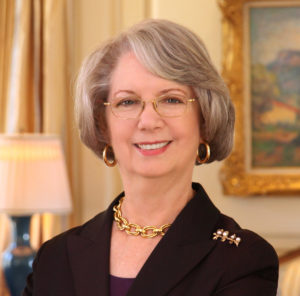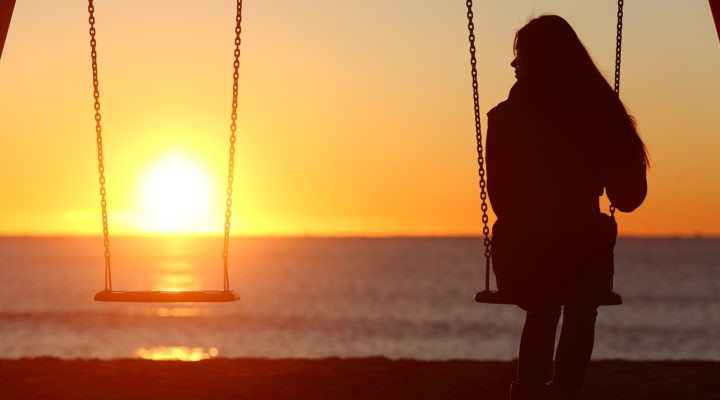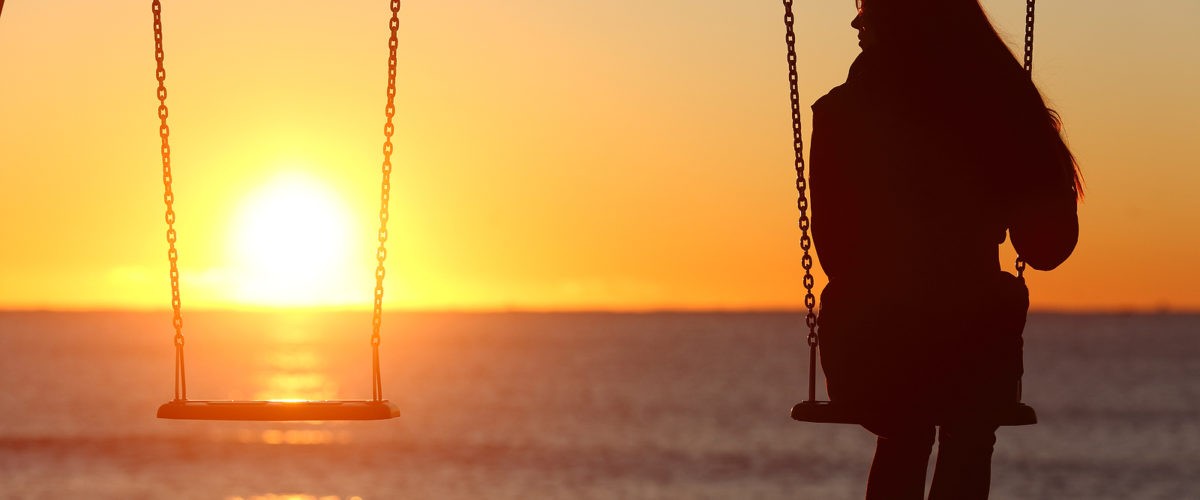None of us are exempt from significant loss at some point in our lives — loss of loved ones, property, health, income. Losses often pile up on one another, and the world seems to turn upside down overnight.
 After my husband’s death in 2009, I sought to make sense of the grief that surrounded me, and I now understand grief as the loss of our tomorrows — of our hopes, dreams, plans and expectations for the future. Bereavement literally means, “I’ve been robbed.”
After my husband’s death in 2009, I sought to make sense of the grief that surrounded me, and I now understand grief as the loss of our tomorrows — of our hopes, dreams, plans and expectations for the future. Bereavement literally means, “I’ve been robbed.”
I have written and spoken on the subject multiple times in recent years, but I did not recognize my own grief when COVID-19 turned my hopes, dreams, plans and expectations upside down during those seven weeks of almost total isolation in the spring. I was angry at everything that disrupted my life. My aloneness overwhelmed me. In 52 days of stay-at-home orders, I cooked and ate 150 meals alone — a depressing record I hope never to match.
With orders lifted, Texans — like many other Americans — drifted into a false sense of safety. COVID was a problem for urban centers on the East and West coasts. We thought we dodged the bullet. For the most part, we were in denial of reality.
During that brief interlude in May, I often invited friends over for dinner on my porch. One evening a widowed friend, describing her struggles with loneliness and depression, said, “I feel like I have been robbed of my future.”
“In 52 days of stay-at-home orders, I cooked and ate 150 meals alone — a depressing record I hope never to match.”
It hit me then. How had I missed it? What I could see so clearly in others, I missed in myself. I was grieving, and I was far from alone in my grief.
Psychiatrists call this phenomenon “anticipatory grief.” Google coronavirus anticipatory grief. You will find dozens of scholarly articles on the subject. It’s the same grief that Elisabeth Kübler-Ross identified in her ground-breaking study of those with terminal illnesses.
As a widow, I reject the five stages of grief: denial, anger, bargaining, depression and acceptance. Death is impossible to deny, and the emotions that strike us after we lose a loved one come and go in no order. But in the case of the pandemic and all its related losses, Kübler-Ross’ five stages of grief make sense.
Although residents of Washington and New York had little time to deny the reality of COVID-19, most of the rest of us — including the federal government — were in denial for at least two months. It was something happening somewhere else. We are finally waking up to the harsh reality of long-term consequences. Complicating our life in community, we are progressing through the stages of grief at very different speeds.
As we have divided into camps of masks and no-masks, acceptance and denial and every stage in between, our anger, stress and anxiety have increased. Almost all of us are angry: some because we perceive that our government has failed us; others, because they perceive that news media have spread false rumors and created mass hysteria. We disagree on whom to believe and trust. There is no national consensus or leadership.
Repeatedly we have made plans, only to see them upended as the virus has spread in unimaginable ways to some of the most remote parts of the country. We are coming to grips with the fact that this may never go away completely and we may never return to the “normal” we once took for granted.
We tried bargaining on the macro and micro levels. If we prohibited travel between China and the U.S., it would go away. That didn’t work. We tried the same with Europe, then with the states most affected at the beginning. That didn’t work either. Governors shut their states down, but most underestimated what would happen when they reopened. They have bargained with us individually: “Wear a mask, wash your hands and social distance.” So far, nothing has worked well enough for us to claim victory over this highly infectious virus.
In my community, almost untouched until Memorial Day, one in eight persons is presumed to have COVID. A few weeks ago, Corpus Christi had the fastest-multiplying number of cases in the country. Our hospitals are full, and refrigerated morgue trailers have arrived. We must assume that every time we leave our homes, we are exposed to COVID.
We feel discouraged, deflated, depressed. After so many months of monotony and drudgery, we struggle to find moments of joy in our lives. Many of us have additional losses of jobs, income and the death of loved ones to COVID. Major family events have been postponed or canceled. All the news seems negative: the pandemic, police brutality, protests and politics.
“Our mortality has never been so real. This is what anticipatory grief feels and looks like.”
The long isolation for those of us who are older and alone is overwhelming. Recommendations that we should isolate ourselves indefinitely so the nation can enjoy some economic recovery anger us.
As one older friend said: “I still have so much I want to do. I am afraid by the time we have a vaccine I will be too old to do them.” She did not say what we all think, “I may not live to have the future I counted on.” Our mortality has never been so real. This is what anticipatory grief feels and looks like.
In my grief after my husband died, I turned to the Apostle Paul’s letter to the Philippians; and my years absorbing its meaning turned into a spiritual memoir, Reclaiming Joy: A Primer for Widows. I try to use the lessons I learned then to reclaim joy now. Two spiritual disciplines help.
I seek to identify at least three small joys every day — a phone call or Zoomtime with family or friends, quiet time in my garden in the cool of the evening, a task completed or a new recipe successfully attempted — and I take time to say, “Thank you, God, for …”
I also claim the Serenity Prayer: God, grant me the serenity to accept the things I cannot change; the courage to change the things I can; and the wisdom to know the difference.
That’s a big question: “What can I change?” followed by “What can I safely and realistically plan?” I need more wisdom than ever before.
“What can I safely do? What is my risk tolerance?” For me, total isolation for an indefinite period of time is unrealistic. So my questions are, “What risks are worth taking? How can I mitigate the risks?”
Family and good friends matter. Finding a place where I feel safe matters. When I plan time with those I care about or an escape to a safer place, I experience anticipatory joy. I have something to look forward to.
I am writing in my hotel room, where I look out on the majestic Teton Mountains, and I experience a joy that I will retain and recall in memory in the days and months ahead. I can say with the Psalmist: “I will lift up mine eyes unto the hills, from whence cometh my help. My help cometh from the Lord, which made heaven and earth.”
Ella Wall Prichard is a journalism graduate of Baylor University who is known as a philanthropist and advisor to Baptist causes in Texas and beyond. A longtime member of First Baptist Church in Corpus Christi, she has served on committees and boards of the Baptist General Convention of Texas and the Cooperative Baptist Fellowship. She was a member of the Baylor Board of Regents and a director of the Baylor Alumni. Her book, Reclaiming Joy: A Primer for Widows, recounts the story of her husband’s untimely death and her suddenly finding herself the president of the family oil business.


